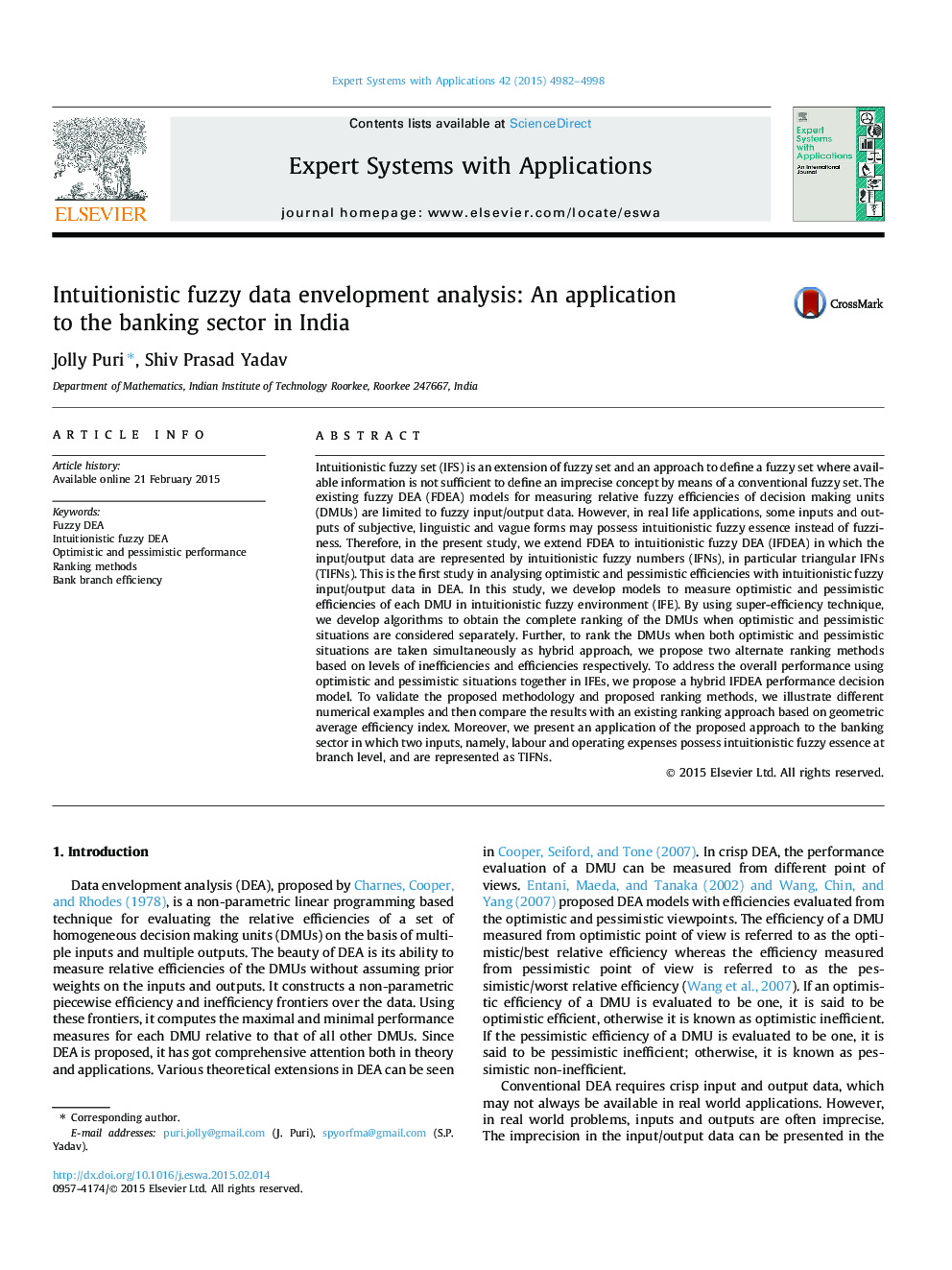| Article ID | Journal | Published Year | Pages | File Type |
|---|---|---|---|---|
| 382788 | Expert Systems with Applications | 2015 | 17 Pages |
•Extend FDEA to intuitionistic FDEA (IFDEA) for handling intuitionistic fuzzy data.•Develop IFDEA models and ranking methods for optimistic and pessimistic situations.•Design a hybrid performance decision process in IFDEA to study overall performance.•Present numerical examples and comparison with existing approach in DEA/IFDEA.•Present application to the bank branches in India with intuitionistic fuzzy inputs.
Intuitionistic fuzzy set (IFS) is an extension of fuzzy set and an approach to define a fuzzy set where available information is not sufficient to define an imprecise concept by means of a conventional fuzzy set. The existing fuzzy DEA (FDEA) models for measuring relative fuzzy efficiencies of decision making units (DMUs) are limited to fuzzy input/output data. However, in real life applications, some inputs and outputs of subjective, linguistic and vague forms may possess intuitionistic fuzzy essence instead of fuzziness. Therefore, in the present study, we extend FDEA to intuitionistic fuzzy DEA (IFDEA) in which the input/output data are represented by intuitionistic fuzzy numbers (IFNs), in particular triangular IFNs (TIFNs). This is the first study in analysing optimistic and pessimistic efficiencies with intuitionistic fuzzy input/output data in DEA. In this study, we develop models to measure optimistic and pessimistic efficiencies of each DMU in intuitionistic fuzzy environment (IFE). By using super-efficiency technique, we develop algorithms to obtain the complete ranking of the DMUs when optimistic and pessimistic situations are considered separately. Further, to rank the DMUs when both optimistic and pessimistic situations are taken simultaneously as hybrid approach, we propose two alternate ranking methods based on levels of inefficiencies and efficiencies respectively. To address the overall performance using optimistic and pessimistic situations together in IFEs, we propose a hybrid IFDEA performance decision model. To validate the proposed methodology and proposed ranking methods, we illustrate different numerical examples and then compare the results with an existing ranking approach based on geometric average efficiency index. Moreover, we present an application of the proposed approach to the banking sector in which two inputs, namely, labour and operating expenses possess intuitionistic fuzzy essence at branch level, and are represented as TIFNs.
